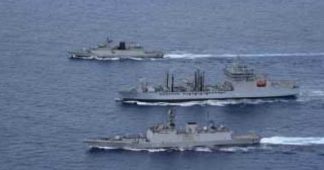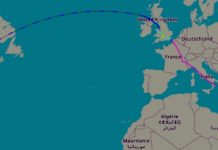Australia to work with NATO Strategic Command Centre on disinformation
By Apr. 7, 2022
The North Atlantic Treaty Organisation (NATO) has announced that it will begin engaging in the Asia-Pacific region both practically and politically in light of Beijing’s growing influence and coercion and its unwillingness to condemn Russia’s invasion of Ukraine.
Speaking following the meetings of NATO Ministers of Foreign Affairs on April 7, NATO Secretary-General Jens Stoltenberg said the global implications of the Ukrainian conflict had propelled the organisation to step up its engagement with Asia-Pacific partners for the first time.
“We have seen that China is unwilling to condemn Russia’s aggression. And Beijing has joined Moscow in questioning the right of nations to choose their own path,” Stoltenberg said. “This is a serious challenge to us all. And it makes it even more important that we stand together to protect our values.”
NATO and its Asia-Pacific partners—Australia, Japan, New Zealand, and the Republic of Korea—met in Brussels to discuss international support for Ukraine.
Stoltenberg said the gathered foreign ministers agreed that NATO’s next Strategic Concept briefing, expected to be finalised for the Madrid Summit in June, must deliver a response on how they relate to Russia in the future and how, for the first time, they take into account that their security is affected by China’s growing influence and coercive policies.
“NATO and our Asia-Pacific partners have now agreed to step up our practical and political cooperation in several areas, including cyber, new technology, and countering disinformation,” he said. “We will also work more closely together in other areas such as maritime security, climate change, and resilience. Because global challenges demand global solutions.”
Australia Announces NATO Cooperation
The news of the Pacific engagement comes as Australian Foreign Minister Marise Payne announced that Australia will be cooperating with NATO to help the organisation better counter hybrid threats and disinformation and reinforce Australia’s support for NATO.
Payne said on April 7 that Australia would partner with the NATO Strategic Communications Centre of Excellence (SCCE) to deepen Australia’s insights into the strategic communications and security challenges facing NATO, NATO Allies, and partners.
“The importance of improving strategic communications has been underscored by Russia’s use of disinformation and propaganda during its illegal and unprovoked war against Ukraine,” Payne said. “We will offer the Centre a clear-eyed view of the geostrategic dynamics in the Indo-Pacific and its implications for NATO.”
The SCCE, which is located in Riga, Latvia, is an international military organisation that has been accredited by NATO but is separate from the NATO Command Structure. Its focus is to contribute to enhancing the strategic communications capabilities between the member states of the NATO Alliance and other allied nations
Australia is an Enhanced Opportunities Partner of NATO, which means they work to enhance interoperability, take part in NATO military training and exercise programs, and share information on issues of mutual interest.
According to Payne, the cooperation will be kicked off by the secondment of one Australian official to the SCCE, from which Australia will then work to combat disinformation and other hybrid threats.
* Victoria Kelly-Clark is an Australian based reporter who focuses on national politics and the geopolitical environment in the Asia-pacific region, the Middle East and Central Asia.
Published at www.theepochtimes.com
We remind our readers that publication of articles on our site does not mean that we agree with what is written. Our policy is to publish anything which we consider of interest, so as to assist our readers in forming their opinions. Sometimes we even publish articles with which we totally disagree, since we believe it is important for our readers to be informed on as wide a spectrum of views as possible.











